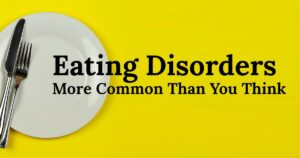Contents
- 1 Who Is An Eating Disorder Counselor?
- 2 Common Eating Disorders
- 3 How Eating Disorder Counselors Can Help?
- 4 Things To Consider When Looking For A Eating Disorder Counselor
- 5 Role Of Eating Disorders Counselor
- 6 Treatment Approaches Used By Counselors
- 7 Questions To Ask When Searching For A Counselor
- 8 When To Seek Help From A Professional?
- 9 Ways To Cope With An Eating Disorder
- 10 Conclusion
Who Is An Eating Disorder Counselor?

Eating disorders can be one of the most devastating and difficult to cope with mental illnesses. Eating disorders counselors help people with eating disorders by providing therapy, guidance, and support in times of need. They work towards helping their patients find healthy ways of coping with their disorder and live a life that is full of joy and happiness.
Eating disorders can be one of the most devastating and difficult to cope with mental illnesses. Eating disorders counselors help people with eating disorders by providing therapy, guidance, and support in times of need. They work towards helping their patients find healthy ways of coping with their disorder and live a life that is full of joy and happiness.
Eating Disorders Counselors are equipped to handle any kind of situation related to an eating disorder such as treatment, education for family members or friends, prevention programs for schools or workplaces, assisting at self-help groups like Overeaters Anonymous (OA), etc. It is important that if you suspect someone has an eating disorder that you don’t ignore it because they may not even know they have it themselves.
Common Eating Disorders

There are various types of eating disorders that one might have to cope with. They are all devastating and difficult to live with. Some examples are depression, anorexia nervosa, binge-eating disorder, bulimia nervosa, or overeating disorder. Eating disorders counselors help their patients find healthy ways of coping with their disorder and live a life that is full of joy and happiness.
Depression– Someone with depression may have depressive episodes, where they feel extremely sad or hopeless for long periods of time.
Anorexia Nervosa– this type of disorder is characterized by an intense fear of becoming obese even though the person is underweight and malnourished. People with this disorder usually engage in excessive dieting and extreme measures to lose weight.
Binge-Eating Disorder– is characterized by episodes of eating large quantities of food in a short period of time, even when the person is not hungry. This disorder often leads to weight gain and can be very difficult to overcome.
Bulimia Nervosa– Bulimia is a condition where a person eats a lot of food in a short period of time and then tries to get rid of the food by purging it from their body. This can be done through vomiting, excessive exercise, or using laxatives.
Overeating Disorder– Overeating disorder is when someone eats too much food on a regular basis and often feels out of control while eating.
Avoidant/Restrictive Food Intake Disorder– is a disorder that is characterized by a lack of interest in food, eating very little, or avoiding certain types of food.
Pica– Pica is a disorder that causes someone to eat non-food items such as paper, soap, and dirt.
Body Dysmorphic Disorder– Body Dysmorphic Disorder is when someone focuses on the idea of one’s body being or appearing “ugly” or “deformed.”
How Eating Disorder Counselors Can Help?
 Therapy is a great way for someone with an eating disorder to see what they’re going through and learn how to overcome it. The counselor will work with the client by helping them cope with their disorder, deal with their anxiety or depression, resolve relationship problems, learn healthy ways of feeding themselves without overeating or under eating, and more.
Therapy is a great way for someone with an eating disorder to see what they’re going through and learn how to overcome it. The counselor will work with the client by helping them cope with their disorder, deal with their anxiety or depression, resolve relationship problems, learn healthy ways of feeding themselves without overeating or under eating, and more.
Education- Counselors can provide education to family members or friends of someone with an eating disorder so that they can better understand what the person is going through and how they can be supportive.
Prevention- Counselors can also provide prevention programs for schools or workplaces so that people are educated on the signs and symptoms of an eating disorder and how to be supportive.
Assisting– Counselors can also assist at self-help groups like OA, where they help out by guiding people through the program.
Eating disorders counselors provide therapy sessions for their patients in order to help them cope with their disorder, deal with any anxiety or depression, resolve any relationships problems, learn healthy ways of feeding themselves without overeating or under eating, and more.
Eating Disorder counselors work in treatment centers to help their patients cope with the illness. They may also work in private practice to help outpatients who are unable to afford treatment elsewhere.
If you are looking for help or know someone who is struggling with an eating disorder, don’t hesitate to reach out to an eating disorder counselor. They can provide you with the support and guidance that you need to overcome your disorder.
Things To Consider When Looking For A Eating Disorder Counselor
If you are looking for an eating disorder counselor, there are a few key things you should keep in mind.
First, it is important that the counselor has experience treating eating disorders. Not all counselors have the same level of training and experience when it comes to these complex illnesses. Furthermore, not all counselors are comfortable working with clients with eating disorders.
Second, you should ask the counselor about their treatment approach. Different counselors use different approaches when it comes to treating eating disorders. Some counselors use a cognitive-behavioral approach, while others use a more holistic approach that includes elements like nutrition and fitness counseling. It is important to find a counselor who uses an approach that you feel comfortable with.
Last, you should ask the counselor about their rates. Counselors typically charge by the hour, and rates can vary significantly. It is important to find a counselor who is affordable for you.
If you are looking for an eating disorder counselor, keep these things in mind! Eating disorders can be very difficult to cope with, but with the right help, you can overcome your disorder and live the life that you deserve.
Role Of Eating Disorders Counselor
The role of the eating disorders counselor is to provide therapy, guidance, and support when needed. The eating disorders counselor has the task of helping their patients find healthy ways to cope with their disorder.
A few things to keep in mind when looking for an eating disorders counselor are skills in treating eating disorders, the prevention programs they have worked on at school or work, or if their treatments are very expensive.
Some individuals have to have a Bachelor’s degree before they can become an eating disorder counselor, but some states will allow someone to counsel those with eating disorders with only certification in counseling.
Treatment Approaches Used By Counselors

There are many different types of treatment approaches that counselors use when it comes to eating disorders. Some counselors use a cognitive-behavioral approach, which helps patients become more aware of their thoughts and feelings about food and their body. Other counselors may use a holistic approach, which includes elements like nutrition and fitness counseling. It is important to find a counselor who uses an approach that you feel comfortable with.
Cognitive-behavioral approach– helps patients become more aware of their thoughts and feelings about food and their body
Holistic approach– includes elements like nutrition and fitness counseling
Questions To Ask When Searching For A Counselor
When searching for a counselor, there are a few key questions you should ask.
- First, it is important to ask if the counselor has experience treating eating disorders. Not all counselors have the same level of training and experience when it comes to these complex illnesses.
- Furthermore, not all counselors are comfortable working with clients with eating disorders.
- Next, you should ask the counselor about their treatment approach. Different counselors use different approaches when it comes to treating eating disorders. Some counselors use a cognitive-behavioral approach, while others use a more holistic approach that includes elements like nutrition and fitness counseling. It is important to find a counselor who uses an approach that you feel comfortable with.
- Finally, you should ask the counselor about their rates. Counselors typically charge by the hour, and rates can vary significantly. It is important to find a counselor who is affordable for you.
When To Seek Help From A Professional?

If you are experiencing any of the following symptoms, you should seek help from a professional:
- Have lost a lot of weight and cannot stop dieting
- Frequently make yourself vomit after eating
- Using laxatives or diuretics on a regular basis
- Feel like you cannot control what or how much you eat
- Obsessively thinking about food and your body image
- Withdrawing from friends and activities due to your eating disorder
- Feeling depressed, anxious, or suicidal
Ways To Cope With An Eating Disorder
It is important to remember that not all cases of eating disorders are severe. In fact, there are many people who have mild forms of these illnesses.
If you do not need counseling at this time, but would like some tips on coping with an eating disorder, below are a few ways to help you:
- Start by tracking your eating habits. This can help you become more aware of the foods that trigger your eating disorder and allow you to make healthier choices.
- Challenge your negative thoughts about food and your body. Replace them with more positive thoughts.
- Join a support group. Hearing other people’s stories can often help you feel less alone.
- Join some type of activity that involves exercise, like running or yoga. This is a great way to take some time out of your day to focus on yourself and enjoy some physical activity without the pressure of weight loss.
Conclusion
Eating disorders counselors can be a great resource for those who are struggling with an eating disorder. However, it can be difficult to find the right counselor who fits your needs. Thermore, not all counselors are comfortable working with clients with eating disorders. It is important to ask the counselor about their approach to counseling and whether they have experience working with clients with eating disorders. You should also ask the counselor about their rates. Counselors typically charge by the hour, and rates can vary significantly. It is important to find a counselor who is affordable for you.
If you are looking for affordable Online Counseling MantraCare can help: Book a trial therapy session



